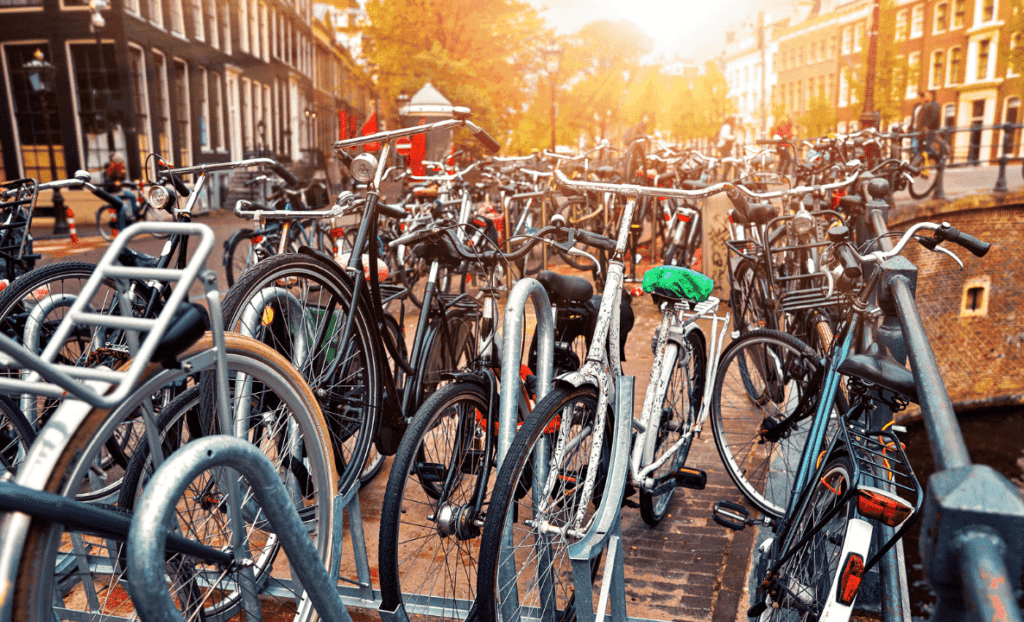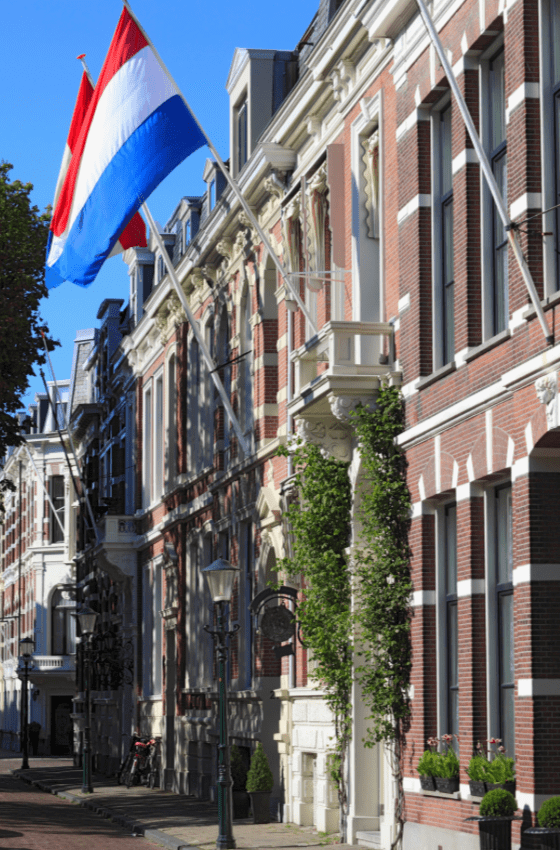Moving to The Hague as an expat can be an exhilarating journey filled with new opportunities and cultural experiences. At Expat Relocation The Hague, we not only assist you in finding the perfect home. In addition, we’ll navigate you through the vibrant local culture and essential Dutch elements that make living in The Hague a unique experience. This post aims to shed light on key aspects of Dutch culture and practical tips to help expats integrate seamlessly into their new environment.
Understanding Dutch Directness
One of the first cultural nuances expats encounter in The Netherlands is the Dutch directness. This cultural norm, often surprising to newcomers, is a hallmark of Dutch communication and social interactions. Unlike in many cultures where messages are often wrapped in layers of subtlety and politeness, the Dutch approach is straightforward and to the point.
This directness comes from a deep value of honesty and efficiency in the Dutch society. It’s not just seen as a way of speaking, but also as a quality. Clear communication and mutual understanding is an asset, according to the Dutch. For expats, this can seem a bit harsh. However, it’s important to recognize that they mean no harm. Instead, it’s a sign of respect and trust, indicating that the speaker considers your worth and opinion.
Adapting to this aspect of Dutch culture, requires an open mind and, often, a thick skin. Remember, when a Dutch person offers you a piece of advice or feedback, it’s not meant to offend you. Instead, it’s genuine help or to inform you. To embrace this, will ease your integration into your new daily Dutch life. In addition, it will enhance your appreciation for the openness and transparency the Dutch culture brings.
Cycling: A Way of Life
Cycling is a real part of the Dutch culture, and The Hague is no exception. It’s not just a mode of transportation. This nation’s love affair with bicycles is evident in its well-planned bike paths, the variety of bike parking spots and the numerous of cyclists navigating the streets. For expats, embracing the cycling culture is not only essential for integrating. It also offers a unique perspective of the country’s values of sustainability, health and community.
The Dutch cycling infrastructure is the best in the world, designed to ensure safety, convenience and accessibility for cyclists of all ages. From dedicated bike lanes and traffic lights to innovative solutions like bicycle highways and underground parking facilities. The Netherlands has thought of every detail to encourage cycling.
For new ones, the popularity of cycling can be both inspiring and daunting. However, diving into this aspect of Dutch culture is incredibly rewarding. Cycling in The Netherlands allows you to experience the cities and countryside from a different point of view. Fostering a deeper connection to the landscape and local communities. It’s also a fantastic way to meet people.
Moreover, cycling shows the Dutch approach to practicality and efficiency. It’s often the quickest and most convenient way to get around. Especially in urban areas like The Hague, where traffic jams can slow down motorized transport. Besides, did you know that we even have more bikes in the Netherlands than people?!

Mastering Work-Life Balance
The Dutch culture is known for its healthy work-life balance, setting an example for expats and professionals worldwide. This balanced approach is deeply embedded in the Netherlands’ societal values. Personal time and family life are given equal importance to professional achievements. For expats moving to The Hague or any other part of the Netherlands, understanding and adapting to this aspect of Dutch culture can significantly enhance the quality of their expatriate life.
In the Netherlands, the concept of “overwerk” (overtime) is far less common than in many other countries. The Dutch working environment encourages efficiency during work hours. This allows employees to enjoy their evenings and weekends to the fullest, free from work obligations. This approach is supported by various laws and practices, including flexible working hours and the possibility for part-time work. Such policies reflect a broader recognition of the importance of mental health, personal development and family time.
For expats, this emphasis on work-life balance can be both refreshing and challenging. It requires a shift from measuring professional success solely by the hours spent at the office to a more holistic view of productivity and well-being.
Embracing this balance means having more time to explore the rich cultural environment of The Hague. But also engaging into hobbies and travel within the beautiful landscapes the country has to offer.
Moreover, the Dutch encourages a supportive and collaborative workplace culture. It’s common for colleagues to share personal interests and activities outside work, strengthening team bonds and creating a more inclusive and friendly environment. This aspect of Dutch culture offers a fantastic opportunity for expats to integrate into their new community.
Exploring Dutch Cuisine
Exploring Dutch cuisine offers a flavorful journey through The Hague’s diverse and culinary world. This exploration is not just about tasting traditional dishes; it’s an integral part of immersing yourself in Dutch culture and understanding the local way of life. For those new to The Hague or the Netherlands, embracing the local cuisine can be both a delightful adventure and a way to connect with the community.
Dutch cuisine, known for its savory and comforting dishes, provides a window into the country’s history and agricultural roots. In The Hague, expats have the unique opportunity to experience both classic Dutch foods and innovative culinary creations that reflect the city’s cosmopolitan spirit. From savory local dishes like “stamppot” (mashed potatoes with vegetables) and “erwtensoep” (split pea soup) to sweet treats such as “stroopwafels” (syrup waffles) and “poffertjes” (mini pancakes), there’s a wide range of flavors to explore.
Moreover, The Hague’s coastal location means seafood heaven for fish lovers. The city’s markets and restaurants offer fresh “haring” (herring), “kibbeling” (battered and fried fish chunks), and “mosselen” (mussels). This access to fresh seafood doesn’t only highlights the Dutch connection to their maritime heritage, it also adds a unique dimension to the culinary experience.
For expats, exploring Dutch cuisine is also about participating in local traditions and festivities. Culinary events, such as the “Hollandse Nieuwe” herring season. But also the “oliebollen” which stands for New Year’s Eve. These experiences deepen an expat’s understanding of Dutch culture and encourage a sense of belonging.
Navigating the Dutch Education System
Understanding the Dutch education system is crucial for family expats relocating to The Hague. This journey involves not just adapting to a new educational framework. It requires exploring the opportunities it presents for development. The Hague, with its variety of international schools, offers a welcoming environment for expat children. It provides high-quality education that encourages to diverse linguistic and cultural backgrounds.
Among the city’s top institutions are The International School of The Hague, The British School in the Netherlands, European School of The Hague. But also the German and French school. They all offer curricula that support a smooth transition into the Dutch educational landscape while maintaining a connection to global educational standards. For the locations of these schools, please see our first or second post about neighborhoods.
Moreover, navigating the Dutch education system in The Hague allows expat families to choose between international programs and national curricula. It ensures students are able to continue their eduction seamlessly. This flexibility is a significant advantage, making The Hague an attractive destination for expat families.
Participating in Local Festivals and Traditions
For expats in The Hague, engaging with local festivals and traditions offers a unique way to immerse themselves in the Dutch culture. This participation is not just about observing; it’s an active step towards understanding the nuances of Dutch culture and forming deeper connections with the community. The Hague, with its rich calendar of events, provides a plenty of opportunities for expats to celebrate alongside locals.
 From the vibrant colors of “King’s Day” and Liberation Day to the enchanting lights of “Lichtjesavond” in Delft, each festival expresses aspects of Dutch heritage and contemporary life. The “Vlaggetjesdag” in Scheveningen, celebrating the arrival of the new herring season. But also the international feel of the “Embassy Festival” are top examples of events that brings together all different cultures.
From the vibrant colors of “King’s Day” and Liberation Day to the enchanting lights of “Lichtjesavond” in Delft, each festival expresses aspects of Dutch heritage and contemporary life. The “Vlaggetjesdag” in Scheveningen, celebrating the arrival of the new herring season. But also the international feel of the “Embassy Festival” are top examples of events that brings together all different cultures.
Moreover, participating in these festivals and traditions goes beyond celebration. It’s an educational journey that offers insights into Dutch history, art and social values. It encourages expats to engage with their new home on a deeper level. Whether it’s through sampling traditional Dutch foods, learning about historical milestones or simply enjoying the common atmosphere.
At Expat Relocation The Hague, we’re committed to making your transition as smooth as possible. From finding houses in The Hague to advice you on local customs and administrative tasks, our comprehensive expat services in The Hague are designed to meet your every need.
Are you ready to start your expat journey in The Hague? Contact us directly. See our contact details below or click on the Whatsapp icon. We are more than happy to guide and assist you with our relocation services. Above all, to make The Hague your new home.